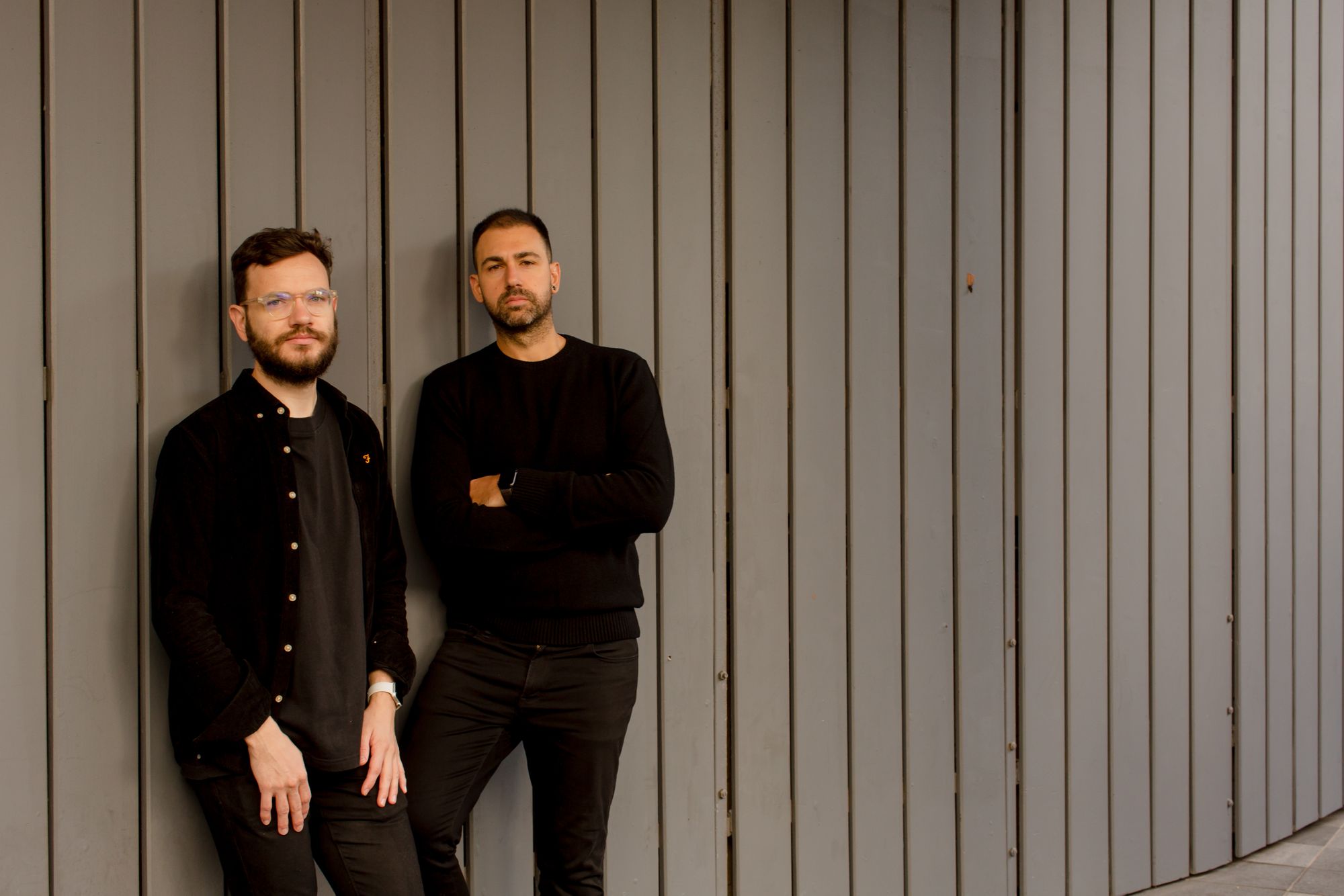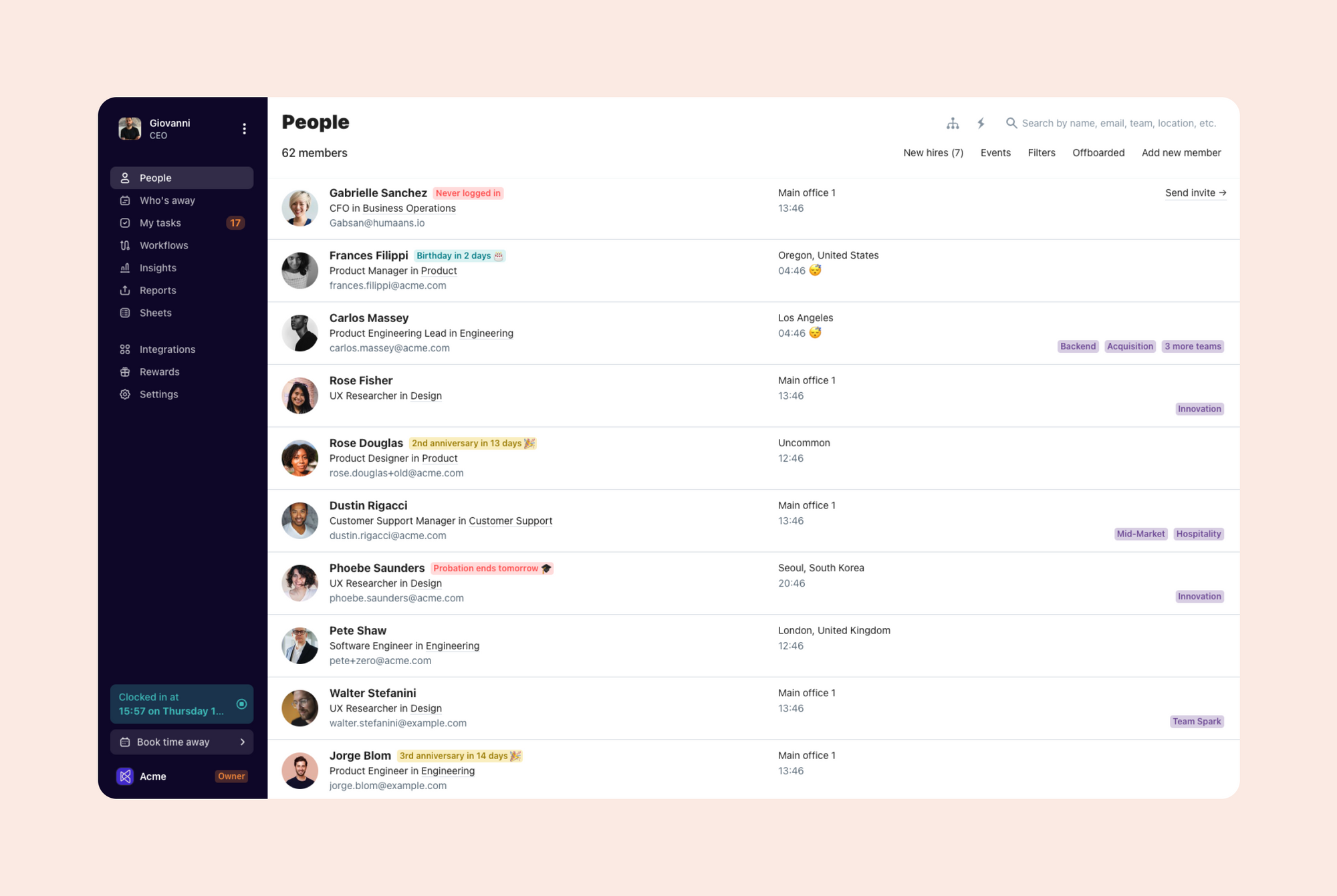The Humaans story: Building a platform for the new era of HR
We caught up with CEO Giovanni to relive the story of Humaans so far, the future of HR, and what the team is up to next.

I remember the day I was introduced to Giovanni Luperti and Karolis Narkevicius, the co-founders of Humaans. It was through Pento, another of our portfolio companies. One conversation was all it took to realise that they had something special.
We caught up with Giovanni to relive the story of Humaans so far, the future of HR, and what the team is up to next.
Early Humaans
Humaans emerged in 2020, right when the world was grappling with the shift to remote and hybrid work – startups in the human resources information system (HRIS) space raised more than $10.5 billion in 2021, according to Crunchbase. Giovanni and Karolis saw a gap. While most HR solutions catered to either large enterprises or small businesses, there was a need for a flexible platform that could grow with a company's HR needs. Their mission? To create a central hub for employee management, from onboarding to payroll, and everything in between.
But as with all startups, their journey wasn’t without its crossroads. After a few more meetings, we had an offer agreed. Then just days after we issued a SAFE note, they received an invitation to join Y Combinator. It was a great opportunity, but it also meant a potential pause in their fundraising efforts.
I recall telling Giovanni and Karolis to take it – to think big and think globally from day one. We’d adjust the terms if need be. In some ways it made the deal more expensive for us, but we thought it was the best thing for them. For Humaans, the question was whether to continue pursuing investment or to focus solely on Y Combinator.
Their ultimate decision to partner with us was influenced by our shared journey. As Giovanni put it, ‘We liked that Moonfire was also in the early stages of its journey. At some larger funds, you don't get to work with the most senior and experienced team members, whereas with Moonfire you get access to the people that are actually building the fund.’
Y Combinator and beyond
Their time at Y Combinator gave them real momentum. They went on to close a seed round and then a Series A led by Stripe alum Lachy Groom, with participation from industry giants like Shopify’s Tobias Lütke, Slack’s Stewart Butterfield, and Niantic COO Megan Quinn – adding to an already amazing roster of angels, including former LinkedIn CEO Jeff Weiner, Stripe's Claire Johnson, Intercom co-founder Des Traynor, and Figma co-founder Dylan Field.
‘The team was able to connect us with the right people at the right time, which allowed us to tap into any learnings that we needed. When we were raising our seed round, Moonfire introduced us to high-profile investors in our space to make sure we were getting the full perspective.’
– Giovanni
While we’re an early-stage fund, having come from a later-stage world helps: we can apply those lessons to early-stage investment – which metrics an investor might care about, the right composition of a cap table, and how to navigate market dynamics.
‘Our cap table is pretty American and we have a number of high-profile people on it,’ said Giovanni. ‘Although European founders have the same level of ambition as our US counterparts to build something big and meaningful, culturally we can be more shy. Moonfire coached us to be bolder and elevate our company’s vision and ambition as much as possible.’
Towards a new HR stack
The HR landscape is evolving. Gone are the days when HR was just about pay and holidays. Today, a Head of People is a strategic pillar in any organisation. Humaans understands this shift. Instead of boxing companies into a one-size-fits-all solution, they champion flexibility. They empower businesses to choose the best tools for their unique needs, ensuring adaptability in an ever-changing world.

For example, payroll in France is handled differently to how it is in the UK. If you use an all-in-one provider, you’d need to create a payroll solution for each jurisdiction and have your own developers stitch them together. Humaans allows you to choose the best off-the-shelf solutions and integrate them automatically. That sort of flexibility is becoming increasingly important in the sector as ‘people as an asset’ becomes more and more important.
Future Humaans
From their early days of bootstrapping while running a digital consultancy, to now serving hundreds of clients across Europe, Humaans has come a long way. And it’s now set its sights on larger markets, focussing on large mid-market and lower enterprise segments.
That’s the tough thing for founders; they constantly have to shed their skin at every stage and learn new things. The sales challenges the Giovanni and Karolis face today are very different from what they had getting those first 20 customers. But even if their challenges have evolved, their commitment to excellence and innovation remains unwavering.
‘We are expanding the level of infrastructure that we offer,’ said Giovanni. ‘Some players in the market are a bit shallow in the way they approach building the tech stack. By going deeper, we aim to provide a better way for companies to extract insights about their workforce, such as diversity data. This can help inform a company’s business strategy.’ It's this kind of forward-thinking that sets them apart.
It's been a privilege to partner with Humaans and watch their execution over the last two years. Their dedication, their vision, and their relentless drive to redefine HR tech is truly inspiring. As the role of HR in business continues to evolve, we look forward to seeing Humaans stand out in a busy category by redefining what it means to be an HR tech company today.

